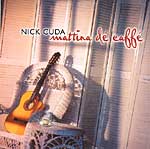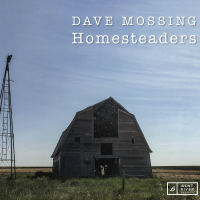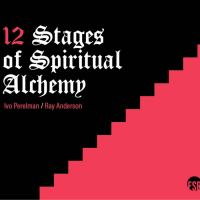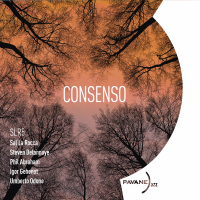Home » Jazz Articles » Reassessing » Patty Waters: Patty Waters: Sings
Patty Waters: Patty Waters: Sings
 Patty Waters
Patty Waters Sings
ESP-Disk
1965
Independent labels like Bernard Stollmann's ESP-Disk lacked sufficient funds to lend much of a push behind their roster. Because of this fact, much of the label's talent has been neglected or left to a cult following. It seems hard to believe today—with a roster boasting artists like Paul Bley, Albert Ayler, Sun Ra, hippie folk cult icons Pearls Before Swine, and The Fugs—that the label didn't become successful like Impulse! did. Among the ESP canon of great forgotten artists are Henry Grimes, Burton Greene, and Patty Waters. One release that demands immediate re-evaluation is Patty Waters' debut, Sings.
Patty Waters herself seems almost as mysterious as her debut record. Her birthplace and date do not usually appear in any articles written about her. All that is known is she moved to Denver, then to LA, where she came to the attention of Miles Davis and Herbie Hancock. She began voice lessons and Davis helped annotate her compositions. After doing her time through the ranks, she landed in New York. Albert Ayler spotted her at a gig, was impressed, and brought her to the attention of ESP. She recorded Sings and a few months later the live College Tour. Waters recorded with the Marzette Watts Ensemble, then by the end of the '60s had relocated to the west coast and raised a son, only sporadically doing shows until 1996's Love Songs. Despite her lack of output—two records in '65 and '66—she managed to leave an impact on the future of vocal jazz.
Sings is one of the truly great "lost" jazz records, a haunting and daring disc that brings to mind the Colpix and Philips records of Nina Simone. Though her work has a taste of Simone, Waters had a unique sound all her own. The first side of the record contains seven short tracks where she accompanies herself on piano. These tracks are dark, beautiful, and ominous pieces, akin to what would be later known as goth music. Goth itself lacks the melancholy beauty of these songs, adopting a more morbid nihilist view born out of late-'70s post-punk. The pieces do, however, work inside an ideology comparable to the poetry of Anne Sexton and Sylvia Plath. The tracks feature sparse accompaniment with lyrics of pain and loss like those on "Moon Don't Come Out Tonight," which opens the record. This theme is repeated throughout the seven tracks that make up the first side. Waters left behind a work of art that shows beauty veiled behind darkness.
The second side of the album features only one track, a thirteen-plus-minute cover of the old folk standard "Black is the Color of My True Love's Hair." This solitary track is the opus that has made Patty Waters a cult icon. She uses a variety of vocal calisthenics that helped set the foundation of avant-garde vocals within many musical genres, influencing artists as disparate as Yoko Ono, Diamanda Galás, and Lydia Lunch. (Galás has often cited Waters as her primary influence.) Backed by fellow ESP pianist Burton Greene, along with bassist Steve Tintweiss and drummer Tom Priceon, Waters' vocals on the track vary from whisper to shriek.
Some may be quick to condemn the record. The thirteen-minute track repeats the word "black" over and over again in a variety of ways, while a trio thrashes through some ESP-style free jazz. But it's a mistake to dismiss Sings, because a potent beauty lies inside this record. Waters certainly proves herself a strong composer and visionary vocalist whose work was thirty years ahead of its time. The pain encapsulated in this record, along with its avant-garde leanings, would find a suitable place along some of today's underground bands and their fans. It is time for a generation of music fans to (re)discover the magic of Patty Waters and give her the praise she has so long deserved.
Suggested Spins:
Patty Waters - College Tour - ESP 1966
Tim Buckley - Starsailor - Bizarre 1970
Diamanda Galás - Plague Mass (1984 End of the Epidemic) - Mute 1991
Diamanda Galás - Litanies of Satan - Y Records 1982
Yoko Ono - Plastic Ono Band - Apple 1970
Yoko Ono - Fly - Apple 1971
Yoko Ono - Season of Glass - Geffen 1981
Tags
PREVIOUS / NEXT
Support All About Jazz
 All About Jazz has been a pillar of jazz since 1995, championing it as an art form and, more importantly, supporting the musicians who make it. Our enduring commitment has made "AAJ" one of the most culturally important websites of its kind, read by hundreds of thousands of fans, musicians and industry figures every month.
All About Jazz has been a pillar of jazz since 1995, championing it as an art form and, more importantly, supporting the musicians who make it. Our enduring commitment has made "AAJ" one of the most culturally important websites of its kind, read by hundreds of thousands of fans, musicians and industry figures every month.








![Full Moon [Feat. New York Voices, Mark Egan]](https://s3.amazonaws.com/allaboutjazz/coverart/large/a07a6f1d5edcd6c801f0e1c3b527da37.jpg)










